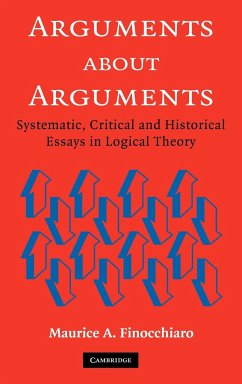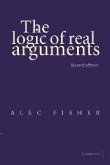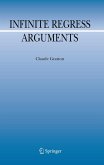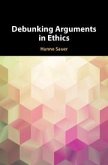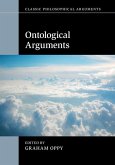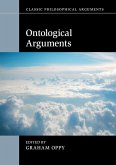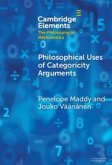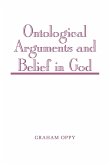Short description/annotation
This book brings together essays by one of the pre-eminent scholars of informal logic.
Main description
Following an approach that is empirical but not psychological, and dialectical but not dialogical, Maurice Finocchiaro defines concepts such as reasoning, argument, argument analysis, critical reasoning, methodological reflection, judgment, critical thinking, and informal logic. Including extended critiques of the views of many contemporary scholars, he also integrates into the discussion Arnauld's Port-Royal Logic, Gramsci's theory of intellectuals, and case studies from the history of science, particularly the work of Galileo, Newton, Huygens, and Lavoisier.
Table of contents:
Part I. Theorizing about Reasoning and Argument: 1. Informal logic and the theory of reasoning; 2. An historical approach to the study of argumentation; 3. Methodological problems in empirical logic; 4. Two empirical approaches to the study of reasoning; 5. Critical thinking, critical reasoning, and methodological reflection: Part II. Fallacies and Asymmetries: 6. Fallacies and the evaluation of reasoning; 7. Six types of fallaciousness; 8. Asymmetries in argumentation and evaluation; 9. The positive versus the negative evaluation of arguments; Part III. Critiques: 10. Siegel on critical thinking; 11. Introduction and intuition in the normative study of reasoning; 12. Logic, politics, and Gramsci; 13. The dialectical approach to interpretation and evaluation; 14. The Port-royal logic's theory of argument; 15. A critique of the dialectical approach; 16. Valid Ad Hominem arguments in philosophy; 17 Dialectics, evaluation, and argument; Part IV. Historical Analyses: 18. The concept of Ad Hominen argument in Galileo and Locke; 19. Newton's third rule of philosophizing; 20. Logic and rhetoric in Lavoisier's sealed note; 21. The concept of judgment and Huygens' theory of gravity; 22. Empiricism, judgment, and argument; 23. Criticism, reasoning, and judgment in science.
This book brings together essays by one of the pre-eminent scholars of informal logic.
Main description
Following an approach that is empirical but not psychological, and dialectical but not dialogical, Maurice Finocchiaro defines concepts such as reasoning, argument, argument analysis, critical reasoning, methodological reflection, judgment, critical thinking, and informal logic. Including extended critiques of the views of many contemporary scholars, he also integrates into the discussion Arnauld's Port-Royal Logic, Gramsci's theory of intellectuals, and case studies from the history of science, particularly the work of Galileo, Newton, Huygens, and Lavoisier.
Table of contents:
Part I. Theorizing about Reasoning and Argument: 1. Informal logic and the theory of reasoning; 2. An historical approach to the study of argumentation; 3. Methodological problems in empirical logic; 4. Two empirical approaches to the study of reasoning; 5. Critical thinking, critical reasoning, and methodological reflection: Part II. Fallacies and Asymmetries: 6. Fallacies and the evaluation of reasoning; 7. Six types of fallaciousness; 8. Asymmetries in argumentation and evaluation; 9. The positive versus the negative evaluation of arguments; Part III. Critiques: 10. Siegel on critical thinking; 11. Introduction and intuition in the normative study of reasoning; 12. Logic, politics, and Gramsci; 13. The dialectical approach to interpretation and evaluation; 14. The Port-royal logic's theory of argument; 15. A critique of the dialectical approach; 16. Valid Ad Hominem arguments in philosophy; 17 Dialectics, evaluation, and argument; Part IV. Historical Analyses: 18. The concept of Ad Hominen argument in Galileo and Locke; 19. Newton's third rule of philosophizing; 20. Logic and rhetoric in Lavoisier's sealed note; 21. The concept of judgment and Huygens' theory of gravity; 22. Empiricism, judgment, and argument; 23. Criticism, reasoning, and judgment in science.

